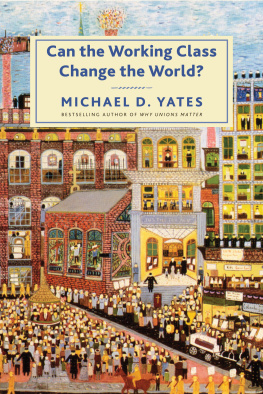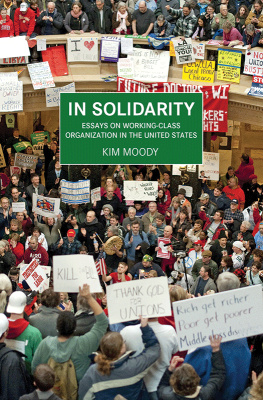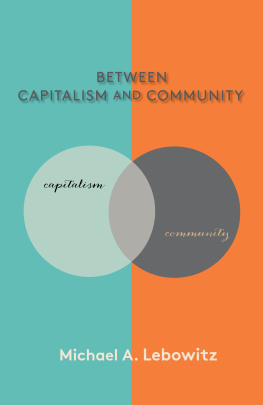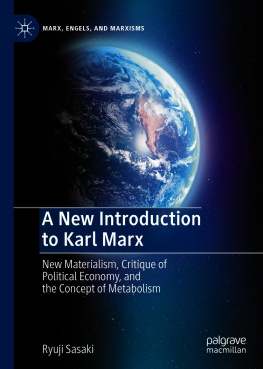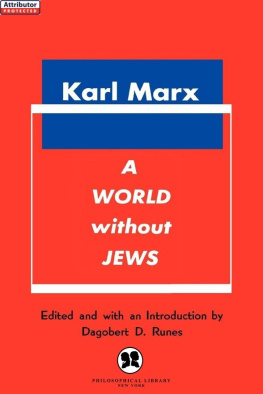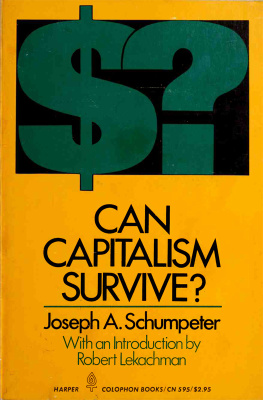
Can the Working Class Change the World?
Copyright 2018. Monthly Review Press. All rights reserved. May not be reproduced in any form without permission from the publisher, except fair uses permitted under U.S. or applicable copyright law.
EBSCO Publishing : eBook Collection (EBSCOhost) - printed on 11/10/2018 9:38 PM via MCGILL UNIV
AN: 1623386 ; Yates, Michael.; Can the Working Class Change the World?
Account: s1226075
CAN THE WORKING CLASS CHANGE THE WORLD?
MICHAEL D. YATES

MONTHLY REVIEW PRESS
New York
EBSCOhost - printed on 11/10/2018 9:38 PM via MCGILL UNIV. All use subject to https://www.ebsco.com/terms-of-use
Copyright 2018 by Michael D. Yates
All Rights Reserved
Library of Congress Cataloging-in-Publication Data available from the publisher
ISBN paper: 978-1-58367-710-0
ISBN cloth: 978-1-58367-711.7
Our thanks to The Labor Heritage Foundation's Fasanella Public Domain Project, which raises funds to purchase original Fasanella paintings and place them in museums and public buildings. For all things Fasanella visit www.Fasanella.org.
Typeset in Minion Pro and Bliss
MONTHLY REVIEW PRESS, NEW YORK
monthlyreview.org
5 4 3 2 1
EBSCOhost - printed on 11/10/2018 9:38 PM via MCGILL UNIV. All use subject to https://www.ebsco.com/terms-of-use
Contents
EBSCOhost - printed on 11/10/2018 9:38 PM via MCGILL UNIV. All use subject to https://www.ebsco.com/terms-of-use
Preface
BY ANY IMAGINABLE DEFINITION of the working class, I was born into it. Almost every member of my extended familyparents, grandparents, uncles, aunts, and cousinswere wage laborers. They mined coal, hauled steel, made plate glass, labored on construction sites and as office secretaries, served the wealthy as domestic workers, clerked in company stores, cleaned offices and homes, took in laundry, cooked on tugboats, even unloaded trucks laden with dynamite. I joined the labor force at twelve and have been in it ever since, delivering newspapers, serving as a night watchman at a state park, doing clerical work in a factory, grading papers for a professor, selling life insurance, teaching in colleges and universities, arbitrating labor disputes, consulting for attorneys, desk clerking at a hotel, editing a magazine and books. I have spearheaded union organizing campaigns and helped in others. For more than thirty years, I taught workers in several labor studies programs, people in every imaginable occupation, from plumbers, bricklayers, postal employees, chemical workers, garment workers, and elevator operators to librarians, nurses, airline pilots, firefighters, and teachers. I once worked for the United Farm Workers Union, meeting campesinos and campesinas and helping them in legal disputes and collective bargaining.
As an academic my fields were labor economics and the relationship between capital and labor. I was most interested in work, especially how it is structured and controlled in capitalist economies. My growing understanding of this helped me to grasp the fundamental cleavage between working people and their bosses. Employees, I came to see, might win better wages, hours, and working conditions through organizing labor unions and agitating politically, under the umbrella of political organizations or parties. They have certainly achieved a great deal in nearly every country in the world using such means. Capitalism is a resilient system, however, and those who control its operations are relentless in their efforts both to prevent labor organizing and to beat back whatever gains unions and working-class political organizations have won. With rare exceptions, the power of capital has remained intact. Gains made have soon enough been taken back. Victorious revolutions have, in time, been reversed.
The conclusion I have reached is that fundamental, radical change, the kind implied in the title of this book, will not happen unless the working class and its allies attack capitalism and its multiple oppressions head-on, on every front, all the time. This is the presumption underlying this book. Struggles must be undertaken and coordinated against employers, the state, the mainstream media, those who run our schools, the police, the prison system, against racism, against patriarchy, against the destruction of the environment, against mega-church evangelicals, against the rise of fascism, against imperialism, and many other persons and institutions. Only such an all-out offensive has any chance of consigning capitalism to historys dustbin. Only this can give us hope of building a fundamentally new society, one with grassroots democracy, economic planning, a sustainable environment, meaningful work, and substantive equality in as many aspects of life as possible.
It would be impossible to list every person who has influenced what is said in this book. But let me single out John Bellamy Foster for tutoring me in matters concerning capitals catastrophic assault on our environment; Paul Le Blanc for his fine work in many of the areas discussed in this book; historian Michael Roberto for reading some of the chapters and making helpful suggestions; Henry Giroux for his encouragement and lifetime of work on critical education; the late David Houston for encouraging my budding radicalism; Herbert Chesler for teaching me so much about labor unions; and my comrades at Monthly Review Press, Martin Paddio and Susie Day. Karen Korenoski deserves special thanks for helping me understand the daily oppression of women and for being my partner through good times and bad. Finally, thanks, Erin Clermont, for your excellent copy editing.
EBSCOhost - printed on 11/10/2018 9:38 PM via MCGILL UNIV. All use subject to https://www.ebsco.com/terms-of-use
To Lucia, Irene, Karen, Tara, and Tatiana, the women who have held up more than half of my world.
EBSCOhost - printed on 11/10/2018 9:38 PM via MCGILL UNIV. All use subject to https://www.ebsco.com/terms-of-use
1The Working Class
I n 2017, Daniel Fetonte was elected to the National Political Committee of the Democratic Socialists of America (DSA), a rapidly growing left-wing organization in the United States. Fetonte was co-chair of the Austin, Texas, branch of the DSA and had been involved in labor union organizing for many years. However, he had also been employed by the Combined Law Enforcement Associations of Texas, the largest police union in the state, with a membership of 21,000 police officers. When DSA members learned of this, many raised objections, arguing that anyone representing cops, who are the perpetrators of assaults, including numerous murders, on working people, especially if they are black, should not be an officer in an organization such as the DSA.
TOWARD A DEFINITION OF THE WORKING CLASS
Fetonte has since resigned from the DSA, but the furor over his election to its board of directors raised a more general question, one it seems best to answer at the beginning of a book like this. What exactly is the working class? Is everyone who works for a wage a member of it? Perhaps in an abstract sense, this is so. But in terms of changing the world, this is a useless definition. Police and prison guards have labor unions. They are paid wages and take orders from supervisors. They are clearly workers. But they are not champions of the rights of other employees. Quite the contrary, as all of capitalist history shows. It would be even more preposterous to include principal corporate officials (including lawyers, accountants, and other highly paid shills and apologists for businesses), top political office holders, Wall Streets elites, and so forth. Those who occupy these positions may have salaries, but they are almost uniformly hostile to everything that might benefit those we normally think of as working class. They will never transform the world except in ways that keep themselves employed, powerful, and rich. To include the CEO of Goldman Sachs in the working class along with farm laborers makes a mockery of the very conception of a class that could create a new world.
Next page
